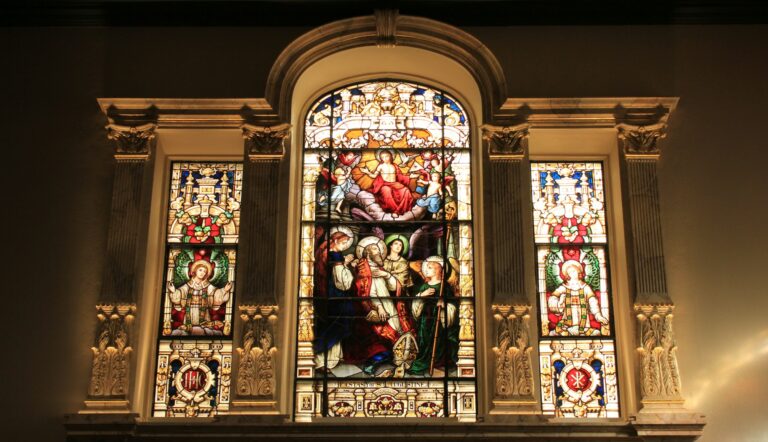The Bible is rich with stories of women who played pivotal roles in God’s plan. As Christians, we often find ourselves reflecting on these women and how their examples shape our understanding of faith, obedience, and service. From the Old Testament to the New, the lives of these women reveal the depth of their faith, the strength of their character, and the ways God used them to fulfill His purposes.
Women as Co-Laborers in God’s Plan
When we think about the very beginning, it’s clear that women were integral to God’s design. In Genesis 2:18, we read: “And the Lord God said, It is not good that the man should be alone; I will make him an help meet for him.” Eve was created as Adam’s partner, showing us that women were not an afterthought but a vital part of God’s creation. Together, men and women were charged with stewardship over the earth.
Throughout the Bible, we see women working alongside men in ways that reflect partnership and purpose. Consider Deborah, a prophetess and judge, whose story is told in Judges 4. Deborah inspired courage in Barak, saying, “Up; for this is the day in which the Lord hath delivered Sisera into thine hand” (Judges 4:14).
Women as Models of Faith and Obedience
The faith of women in the Bible is awe-inspiring. We see this in Sarah, who trusted God’s promise despite her old age. Hebrews 11:11 commends her faith: “Through faith also Sara herself received strength to conceive seed, and was delivered of a child when she was past age, because she judged him faithful who had promised.” Her story challenges us to trust God, even when His promises seem beyond our understanding.
Mary, the mother of Jesus, is perhaps the ultimate example of obedience and humility. When the angel Gabriel appeared to her and revealed that she would bear the Savior, Mary’s response was one of profound faith: “Behold the handmaid of the Lord; be it unto me according to thy word” (Luke 1:38). As we read her story, we are reminded to submit to God’s will with the same readiness and trust.
Women as Witnesses and Disciples
In the ministry of Jesus, women played a crucial role. Mary Magdalene, Joanna, Susanna, and others supported Jesus and His disciples out of their resources (Luke 8:1-3). These women were not passive bystanders; they actively participated in spreading the gospel. Mary Magdalene, in particular, holds a special place as the first witness to the resurrection. Jesus entrusted her with the message: “Go to my brethren, and say unto them, I ascend unto my Father, and your Father; and to my God, and your God” (John 20:17).
This highlights how Jesus broke societal norms of the time, elevating women to roles of spiritual significance. In His interactions, He consistently showed respect and inclusion, as seen in His conversation with the Samaritan woman at the well (John 4). Through her testimony, many in her city came to believe in Him, underscoring the power of a woman’s witness.
Women as Symbols of God’s Redemption
The Bible also presents women as symbols of God’s redeeming love and grace. Consider Ruth, the Moabitess who chose to follow Naomi and embrace the God of Israel. Her loyalty and faith were rewarded when she became part of the lineage of Christ. Her declaration, “Thy people shall be my people, and thy God my God” (Ruth 1:16), inspires us to pursue God with unwavering devotion.
We see another powerful example in Rahab, who, though initially a harlot, demonstrated her faith by protecting the Israelite spies in Jericho (Joshua 2). Her faith not only saved her family but also earned her a place in the genealogy of Jesus Christ (Matthew 1:5). These stories remind us that no matter our past, God’s grace can transform our lives and use us for His glory.
Women in the Church Today
As we reflect on the roles of women in Scripture, we also consider how these examples inform our roles today. The New Testament encourages women to contribute to the body of Christ through edification, hospitality, and service. Paul commended women like Phoebe, a deaconess, whom he described as a “servant of the church” (Romans 16:1). Similarly, Priscilla worked alongside her husband, Aquila, to disciple others (Acts 18:26).
These examples urge us to use our God-given gifts for the edification of the church. While the roles may vary based on context, the heart of the matter is that every woman, like every man, is called to serve God faithfully in the unique way He has equipped her.
Lessons We Can Learn
The Bible’s portrayal of women teaches us several vital lessons:
- Faith and Trust: Women like Sarah and Mary remind us to trust God’s promises, even when the journey seems impossible.
- Courage and Edification: Figures like Deborah and Esther show us that God can use women to edify with wisdom and strength.
- Humility and Service: Women such as Ruth and Mary Magdalene inspire us to serve God and others with humility.
- Redemption and Grace: Stories of Rahab and others illustrate how God’s grace can transform lives and use us for His glory.
Conclusion: Embracing Our God-Given Purpose
As we study the role of women in the Bible, we recognize their importance not as secondary characters but as co-laborers in God’s divine story. Their faith, courage, and obedience challenge us to live our lives with the same devotion. Let us celebrate the examples of these women, learning from their stories and allowing their lives to inspire us in our walk with Christ.
May we, like them, seek to fulfill God’s purpose in our lives with faithfulness and joy. And may we always remember the words of Proverbs 31:30: “Favour is deceitful, and beauty is vain: but a woman that feareth the Lord, she shall be praised.”
-
On First Principles – Origen: A Early Christian Guide to Thinking Deeply About God
Want a deeper faith that can think clearly? Origen’s On First Principles shows how early Christians wrestled with big doctrines and why it still matters.
-
Apology By Justin Martyr: A Bold Defense of the Faith for a Skeptical World
Justin Martyr shows how to defend the faith with courage, clarity, and calm confidence, even when the culture gets it wrong.








